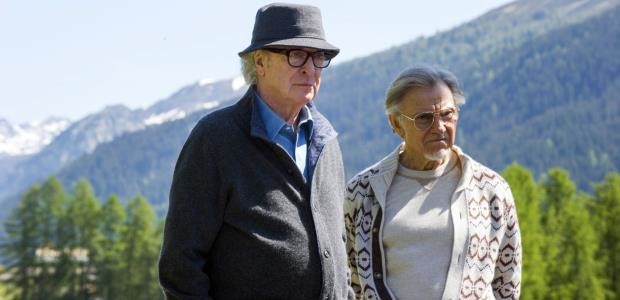No review of Youth can be written without mentioning its striking resemblance to a Wes Anderson film. But where Anderson has found a niche in simplifying his characters, director Paolo Sorrentino’s approach isn’t as spoon fed. Almost entirely told through ironies and metaphors, Sorrentino uses a non-linear narrative, and contrary to what the title says, his running commentary is a satirical take on the hardships of ageing.
Fittingly, screen veterans Michael Cain and Harvey Keitel are in the lead and they are both excellent. Cain plays Fred Ballinger, a retired music composer/director, while Keitel plays Mick Boyle, a famous Hollywood director out to make his last great film. As best friends vacationing at a luxuries hotel in the Swiss Alps, they are both past their prime and they know it. Each struggling with personal demons, they also know that this could be their last meeting, but not before leaving behind a legacy. Along with them are a plethora of oddball characters – Ballinger’s daughter and assistant Lena (Rachel Weisz) jilted by her husband for an ugly pop star, a Hollywood actor researching his provocative next role (Paul Dano), an obese soccer legend with health issues, a monk who wants to levitate, a Miss Universe out to prove that she’s not just a pretty face, and a Hollywood actress too proud to remember her origins (towering cameo from Jane Fonda), to name just a few. Where and how these characters fit in is up to us, the audience, and Sorrentino has an Easter egg hidden behind each of them.
For a multi-layered narrative, Youth can feel disjointed at times and even superficial, but that’s a matter of perspective and precisely where this film shines. And although delivery from everyone is outstanding, with Cain at his stellar best, the real star of this film is cinematographer Luca Bigazzi. Every frame is perfectly composed and reminiscent of Anderson’s The Grand Budapest Hotel. Only here it’s not just about picture perfect landscapes or tightly framed close-ups. What Bigazzi does with available light and shadow is just stupendous. Nudity in particular are moments shot with restrained taste, while conveying the ultimate sense of freedom beyond human inhibitions. Another night scene in Venice had my thoughts racing to that haunting fatality scene in Under the Skin. Likewise, there are several other scenes where the camera does a lot of the talking even when characters are mute, almost as if aping Fred’s explanation of his music – “You don’t need words to understand it. It just is”.
More than anything, Youth is a series of powerful metaphors about friendship, love, regret, and looking back on a life that was. It’s not the most moving or original, and there’s barely a single plot running alongside its deliberately paced 120 minutes. Then again, it’s all about perception and as art house films go, beauty is always in the eyes of the beholder.
Rating: 




